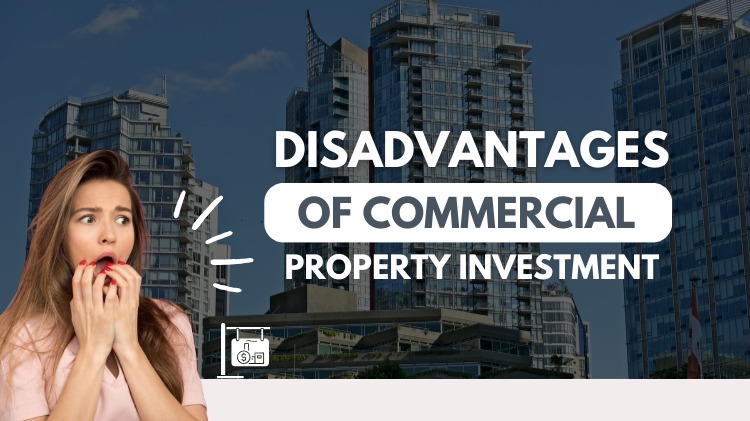Table of Contents
Commercial real estate investing is frequently viewed as a strategy to increase wealth and get good profits. Commercial real estate has a lot to offer, but it’s important for investors to understand that the road isn’t always easy. We at Country Roof hope to clarify the disadvantages of investing in commercial real estate in this post by providing information on disadvantages of commercial property investment.
1. High Initial Costs:
The substantial upfront costs are one of the biggest drawbacks of investing in commercial real estate. Commercial real estate, such as office buildings, retail establishments, and industrial complexes, is frequently very expensive. For individuals or small investors wishing to enter the commercial real estate market, this hefty initial expenditure can be a significant barrier.
2. Risk and Market Volatility:
Commercial real estate is not immune to market fluctuations or recessions. Your business property’s value may change as a result of variables including shifting demand, local economic conditions, or even wider national or international economic problems. Due to the market’s turbulence, it may be difficult to foresee and guarantee a steady return on your investment.
3. Extended Vacancy Periods:
Commercial properties frequently go unoccupied for longer periods of time than residential ones. It can take some time to find the ideal tenant for your commercial space. Being forced to pay maintenance fees and property taxes without rental income when a property is vacant can be expensive.
4. Ongoing Maintenance and Operational Costs:
Commercial properties need routine upkeep and attention. Commercial tenants often anticipate landlords to keep the property in good shape, in contrast to residential buildings where tenants frequently undertake minor repairs. These upkeep expenses may eventually reduce your earnings.
5. Tenant Defaults and Lease Negotiations:
For commercial real estate investors, tenant defaults—where tenants refuse to pay rent or violate lease agreements—can be a headache. Finding a replacement renter can be just as difficult as the process of evicting a commercial tenant. Additionally complicated and including legal terms and conditions that require careful thought are lease discussions.
6. Market Timing and Liquidity:
It can be challenging to time the commercial real estate market. When opposed to purchasing or selling stocks or bonds, real estate transactions can take longer to execute. Commercial real estate may not be as easily liquidated as other investments when you need to sell it quickly, making it challenging to get to your money when you need it.
7. Property Management Challenges:
In comparison to managing residential properties, managing commercial properties can be more complex and time-consuming. It might be difficult to manage several renters, maintenance requests, and property-related difficulties. Many investors choose to work with property management firms, which might increase costs.
8. Regulatory and Legal Complexities:
A complicated web of laws and regulations govern commercial real estate. Depending on the region and property type, lease agreements, zoning regulations, and building rules can all differ greatly. Maintaining compliance with these rules might be difficult over time.
9. Limited Diversification:
Lack of portfolio diversification may be the result of overcommitting to commercial properties. Your investment is heavily concentrated in one asset class if you only invest in commercial real estate, which increases your exposure to its hazards.
10. Vulnerability to Economic Downturns:
Economic downturns have an especially negative impact on commercial buildings. Higher vacancy rates and decreased rental income can have an effect on the overall value of your investment during economic downturns or when enterprises struggle or shut down.
Check: Guide For Invest In Commercial Or Residential Property In Noida/Greater Noida
Conclusion:
While making an investment in commercial real estate might bring about significant financial gains, it’s important to be aware of the drawbacks. The difficulties investors may encounter include high startup costs, market volatility, protracted vacancy periods, continuing maintenance costs, and regulatory complications.
At Country Roof Real Estate, we place a high value on offering a fair assessment of the housing market so that our clients may make wise choices. Thorough research is essential before investing in commercial real estate. Think about these drawbacks in addition to any potential advantages, and seek the advice of seasoned real estate experts who can help you through the complexity of the commercial real estate market.
Every investment entails some degree of risk, and effective investing requires thorough planning, risk-reduction techniques, and a long-term outlook. Investors can put themselves in a successful position in the difficult but rewarding world of commercial real estate by being aware of these drawbacks and taking proactive measures to address them.




